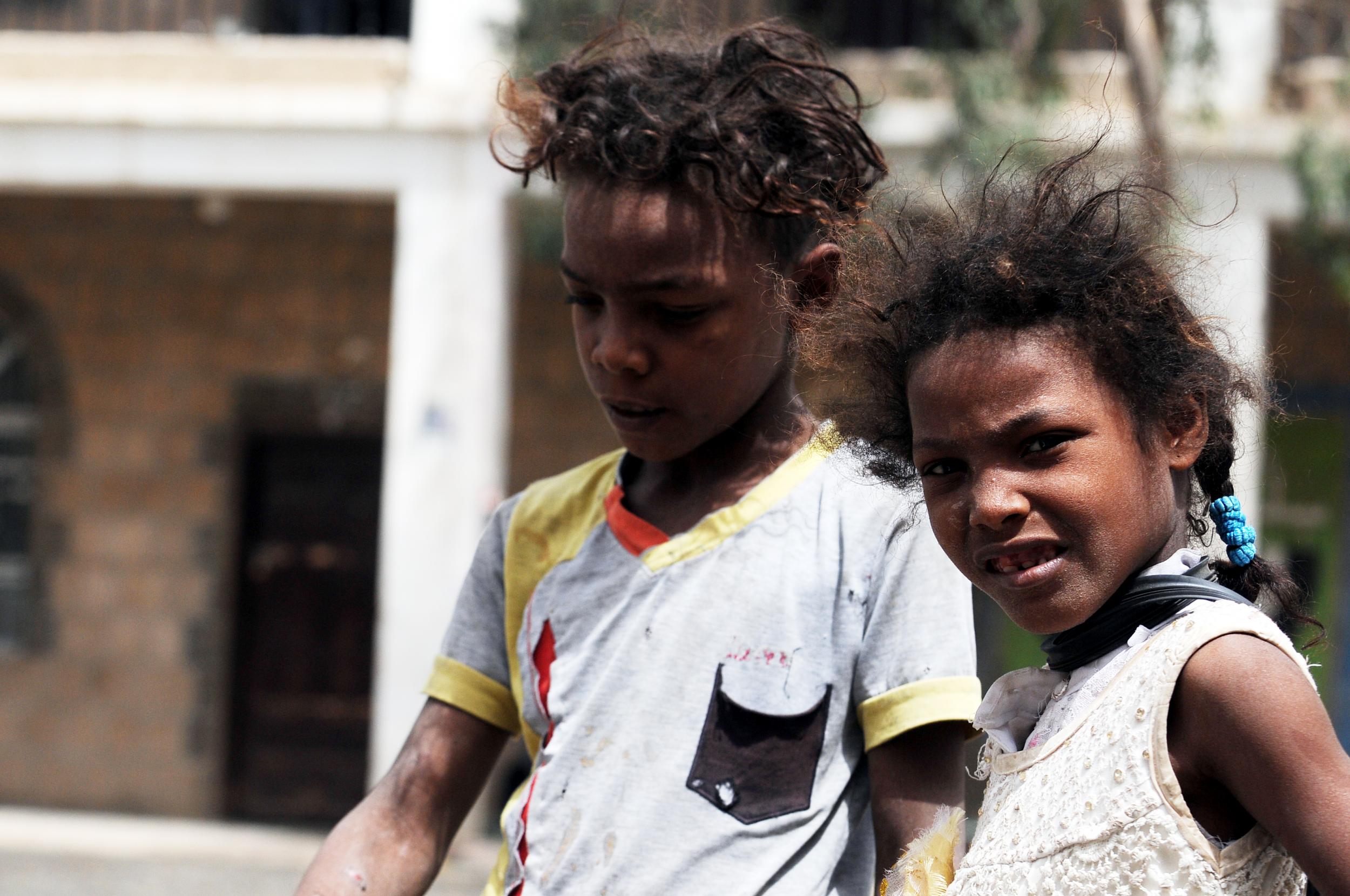Battle for Hodeidah: Glimmer of hope in UN talks to save vital Yemeni port
More than 120,000 civilians have fled the biggest offensive in Yemen’s war to date, which aid agencies warn could plunge entire country into famine

Your support helps us to tell the story
From reproductive rights to climate change to Big Tech, The Independent is on the ground when the story is developing. Whether it's investigating the financials of Elon Musk's pro-Trump PAC or producing our latest documentary, 'The A Word', which shines a light on the American women fighting for reproductive rights, we know how important it is to parse out the facts from the messaging.
At such a critical moment in US history, we need reporters on the ground. Your donation allows us to keep sending journalists to speak to both sides of the story.
The Independent is trusted by Americans across the entire political spectrum. And unlike many other quality news outlets, we choose not to lock Americans out of our reporting and analysis with paywalls. We believe quality journalism should be available to everyone, paid for by those who can afford it.
Your support makes all the difference.The UN’s special envoy to Yemen has returned from talks with the Houthi rebel leadership championing what he called “positive and constructive” progress over the fate of the vital port city of Hodeidah.
British national Martin Griffiths, who took up the post in February this year, addressed the United Nations security council in a closed-door briefing on Thursday after his return from capital Sanaa, where he met with rebel leader Abdul Malek al-Houthi, and Aden, the Yemeni government’s interim base.
“All parties have not only underscored their strong desire for peace, but have also engaged with me on concrete ideas for achieving peace,” he said in a statement.
“I look forward to working with all the parties urgently to find a solution both that will restore security and stability in Hodeidah but also create positive conditions for a rapid and urgent restart of political negotiations in the coming days.”
While no details have been made public, the Saudi-based al Arabiya reported on Friday that the Houthis rejected a proposal to hand Hodeidah and its port over to UN jurisdiction, instead suggesting joint management, but in principal verbally agreed to a lasting ceasefire.
While at least one Houthi negotiator later said no significant progress had been made, the visit to Sanaa nonetheless marks the first high level UN meeting with Houthi leadership since Yemen’s civil war broke out in 2015.
The political progress comes as the UN’s Office for the Coordination of Humanitarian Affairs (Ocha) released a new report which has found 121,000 people have been displaced by the fighting since Operation Golden Victory began last month.
Resident Ahmed Abdullah Nasser told The Independent that airstrikes were still intermittently hitting southern suburbs of the city, despite an official pause in fighting while protracted talks continue.
As well as the immediate threat to the city’s 600,000 civilians from close-quarters urban fighting, Hodeidah, on Yemen’s Red Sea coast, is a lifeline for the rest of the country’s 28 million-strong population.
More than 80 per cent of Yemen’s commercial goods, fuel and aid pass through the city’s port – leaving aid agencies sounding the alarm that any damage caused by Operation Golden Victory could exacerbate the country’s dual malnutrition and cholera crises.
The Arab coalition fighting to regain control of Yemen – led by the exiled government, Saudi Arabia and the UAE – hopes retaking Hodeidah will clear a path to driving rebels out of the capital, Sanaa, and end the current stalemate in the three-year-old war.
Join our commenting forum
Join thought-provoking conversations, follow other Independent readers and see their replies
Comments